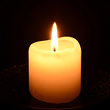ANTHONY CLAREProfessor Anthony Clare, who died on 29 October, 2007, was credited with popularising psychiatry in the 1980s with his radio and television work.He was best known for the long-running BBC Radio 4 show In the Psychiatrist's Chair, in which he would delve into the minds of famous people.Anthony Ward Clare was born in Dublin on Christmas Eve, 1942. He studied medicine at University College and qualified as a doctor in 1966. He then had an internship at St Joseph’s hospital in New York, before returning to Dublin to train as a psychiatrist at St Patrick's.He moved to London in the early 1970s and worked as a registrar at Maudsley hospital, before becoming a researcher at the Institute of Psychiatry in 1976. It was during his six years in the job that he began his broadcaster career.His first media appearances were on the light-hearted Radio 4 current affairs programme Stop the Week. His regular slot interviewing celebrities about their lives led to In the Psychiatrist's Chair, which first broadcast in 1982.The show featured such guest and their revelations as Paddy Ashdown weeping over the death of his father, Esther Rantzen admitting she had always been insecure about her appearance, scandalised politician Cecil Parkinson lamenting the unhappiness he had caused to other people and Stephen Fry talking of his father’s disapproval of him.Though frequently compelling, Prof Clare’s questioning was never overly probing. He made his ‘patients’ feel comfortable and reassured, resulting in intimate revelations without intrusion. In the Psychiatrist's Chair ran for 19 years and resulted in television appearances for Prof Clare on programmes like QED and After Dark.He wrote his first book, the insightful commentary Psychiatry in Dissent, in 1976. He penned several more books on the subject of psychiatry, including three volumes based on his radio show and Depression and How to Survive It (1994) which was co-written with the comedian Spike Milligan.Though he was always respectful of his peers, Prof Clare never shied away challenging them, writing critical evaluations of psychiatric luminaries such as R D Laing and Thomas Szasz. He was also vocally disparaging about the theories of Sigmund Freud and the practice of psychoanalysis describing it as "the most stupendous confidence trick of the century".Prof Clare was raised as a Catholic but lost in faith during his education. He said: "I can't really believe in a god that can suddenly and haphazardly intervene during one moment of history, causing air crashes, genocide and famine." He added, however, that he missed the "theatricality" of the Catholic Church.He was not without his critics. Some within the psychiatry field felt he was just a smooth-talker with celebrity status and said that the value of his interviews was questionable. Others, however, cited him as having done more to bring his profession into the British public eye than anyone else in the latter half the 20th century.He was married to fellow University College Dublin alumni Jane Hogan in 1966 and the couple had three sons and four daughters. They lived in London while Prof Clare’s career was gathering speed, but returned to Dublin in 1989. In Ireland his campaigning for the introduction of divorce in the 1990s led to speculation that a career in politics beckoned.However, this was a difficult period for him personally and the strain of balancing his family life with travelling to England for work was beginning to tell. It was his dedicated wife Jane who eventually helped him work through it and allowed him to continue working into the next decade, dividing his time between occasional radio programmes and seeing patients at St Edmundsbury Hospital near Dublin.He had been due for retirement at the end of 2007 when he died of a heart attack in Paris at the age of 64.
Keep me informed of updates




